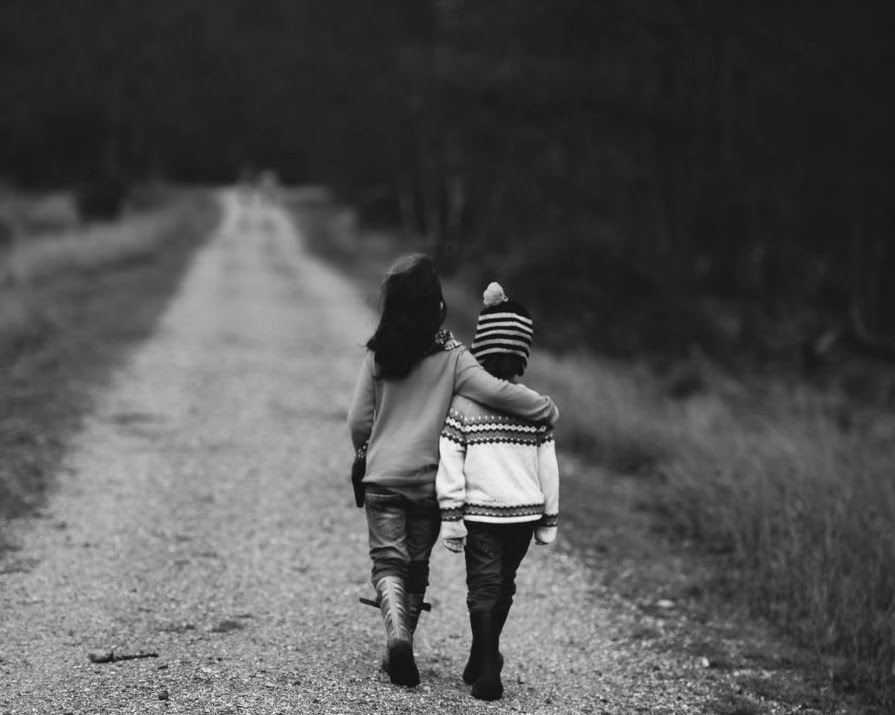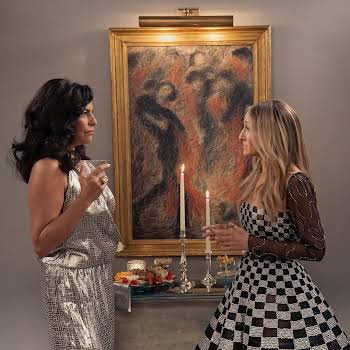By Jessie Collins
19th Oct 2017
19th Oct 2017
“Why are you talking to a strange man,” said the strange, elderly man to my daughter in the park. Like many other four-year-olds, my daughter is naturally sociable and inquisitive, so banter with the occasional randomer is not unknown behaviour. Yet suddenly I felt chastised. I checked myself, I’d never really prevented her from smalltalk with someone we encountered, in fact I thought it was something to encourage, you want your kid to be friendly, outgoing, confident, and curious. But was that just my child of the 70s parenting techniques coming into play, was I living in a fantasy where we can still engage with strangers and it not to be a situation of threat?
Yet my mother, my go-to audience when looking for a parenting reality check and having actually been a purveyor of 70s parenting techniques said he had a point. This was about training, I had to start raising her to be cautious of other people. Which meant I also had to explain why. “Why can’t I talk to the man mum?” “Because we don’t know him. You can’t trust everyone, not everyone is okay to talk to.”
Then I quickly found myself becoming more and more wary, practically squawking, red-faced, across parks and playgrounds, and around blind corners, that “I have to see you at all times!” and feeling essentially like a deranged, shrill, chicken herder whose flock couldn’t give a rats ass about being visible or accountable, all the while watching dads inhabiting the same physical space, yet seeming to exist in a separate universe (perhaps the actual 70s), scrolling through their Facebook feed oblivious to the raging dangers and predators as well as potential life-threatening territory (AKA, the local park) we were in.
It was time to take another reality check, which came courtesy of the fascinating Invisibilia podcast by NPR. In their episode, World With No Fear, they looked at how nature imbued us with the need to feel fear, but how the modern world sends it into unnecessary overdrive. In it, they unearthed the work of Roger Hart, an environmental psychologist who studied a group of three to 12 year olds in a small town in Vermont in the 70s. At that time, no one had studied kids behaviour alone, more in fact was known about baboons daily goings on then seven-year-olds (only a slight comparison intended). Hart followed them for two and half years, observing them at play, on their own. He made maps of where each child was allowed to go. They had extraordinary freedom, and by the time they were ten, they had the run of their town.
A few years ago, he went back to the town, and studied the next generation, many of whom were children of the original 70s group. Unsurprisingly he found that their circle had narrowed massively. These kids could walk him around the area of their property but that was about it. They had little or no freedom to roam. Yet the crime rate had gone down, the dangers were actually if anything less, not greater, then they had been in the 70s.
It seems we have all learnt to accept this fear as a normal constant state, but that’s not to say it is. Apparently modern life is constantly triggering our fear in all kinds of ways that our natural world didn’t, when in fact, we are under much less threat then we were in the environment we originally evolved in. Apparently, we are just hardwired to overly focus on any horror that takes place, despite it’s actual relevance to us.
In fact, many believe the whole ‘stranger danger’ approach needs to be scrapped. And the light of recent events around sexual harassment and women, the reality is that it is the people you know, not the ones you don’t, who are potentially threatening. The scary truth is that 1 in 4 girls and 1 in 6 boys will be sexually assaulted by the time they reach 18 years of age. That’s a real fear, and that comes from dangers potentially inside your fold.
The ‘stranger danger’ thing has, many believe, actually done more harm than good. The task now is to raise a generation that feel empowered enough to call out anything that makes them feel uncomfortable, which is more than likely something that will come via their interaction with their peers, or adults they know. So thank you, strange man in the park, for making me think this one through, I will make sure my daughter knows not to go off with anyone who offers her puppies or lollies or generally anyone without me, but it is the everyday predatorial behaviour by those in our midst where I will be putting most of my efforts.























